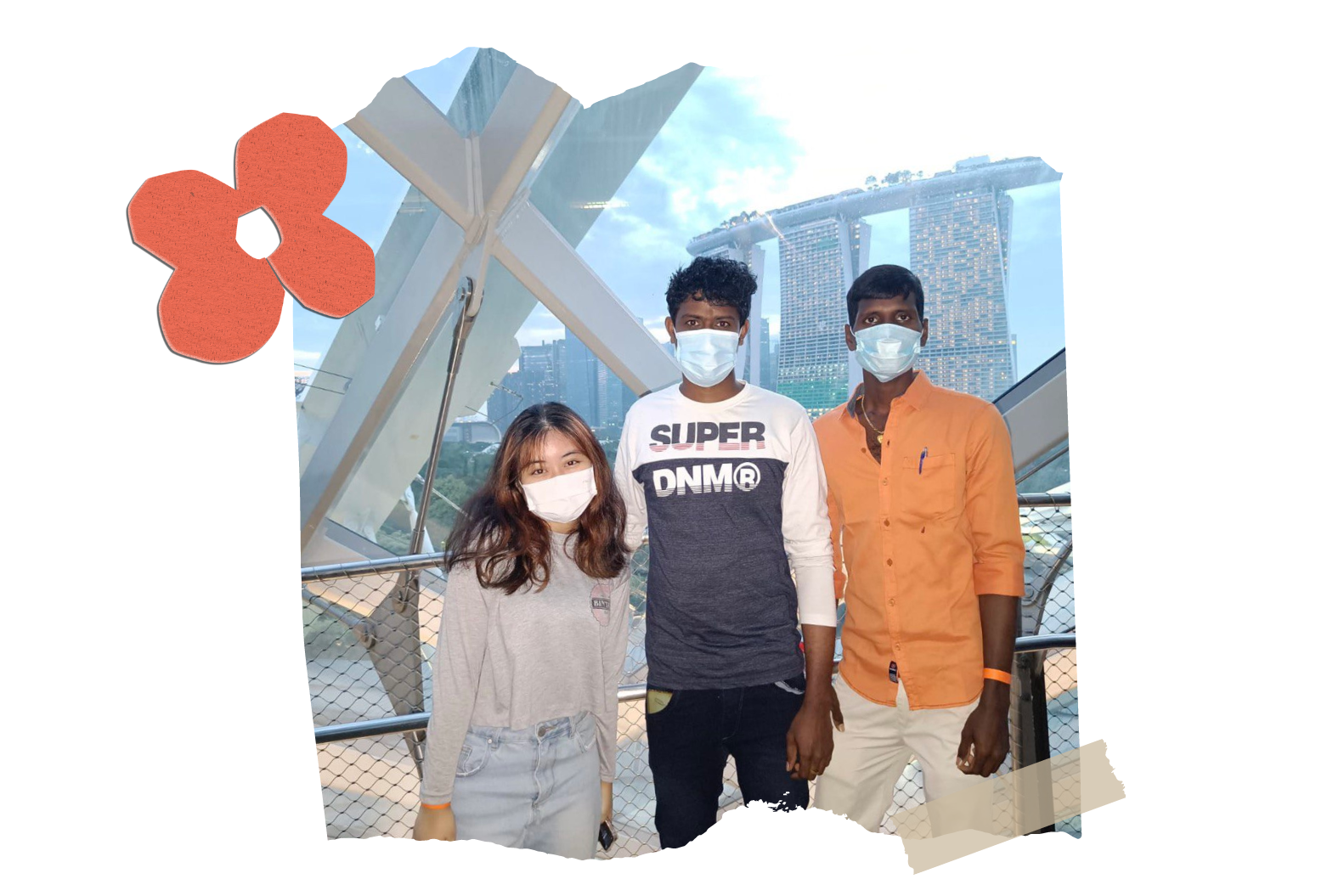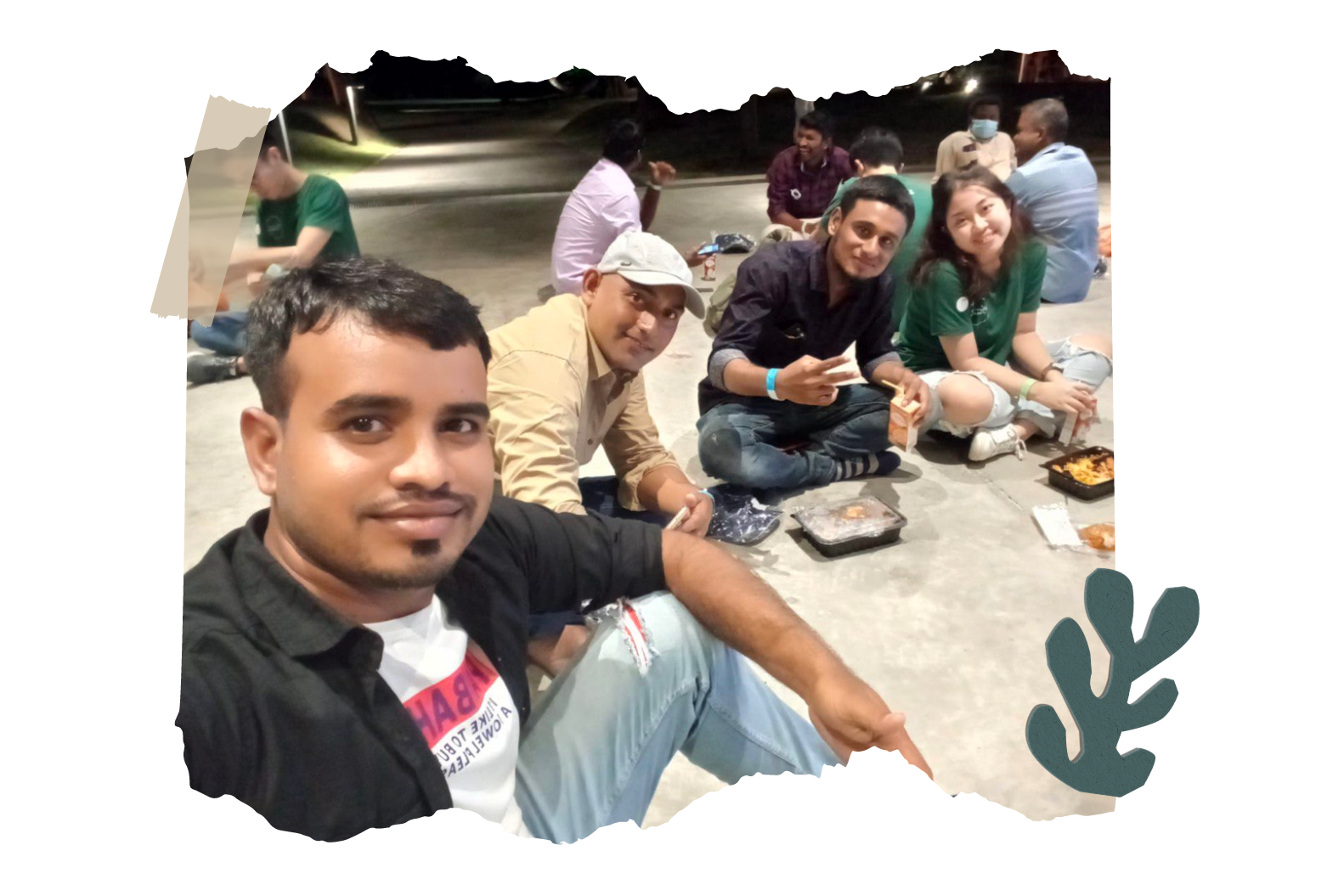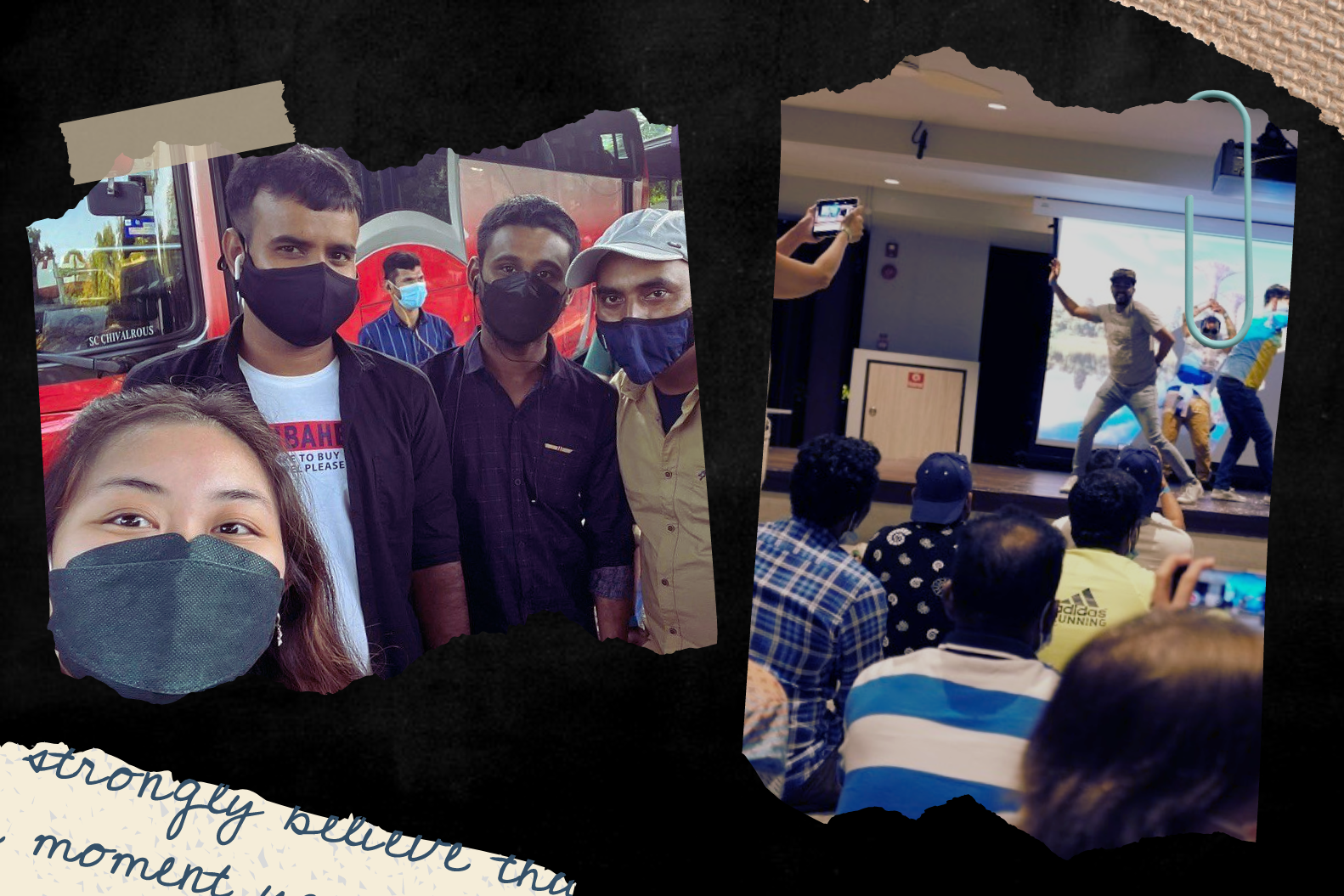When I was 15, my route back from school always involved alighting at a bus stop, before winding past a few houses back to my apartment.
There was a house under construction then, and on the daily commute home I would typically see two or three migrant brothers drilling, excavating or demolishing some part of it.
I would always wonder how they were doing. I made mental notes to say hello and even thought of buying drinks for them.
But each time, I hurried away sheepishly without doing anything. I didn’t know how to act.
Internally I was screaming: “I see you! Thank you for working so hard!” But my own fears and uncertainties got in the way.
Years later in university, though I got involved in migrant worker community engagement projects — they still felt cursory.
My desire to connect with this community was hindered by a lack of understanding of what they needed.
Friendships just waiting to blossom
However, at the start of this year, I began a journey of truly understanding the migrant worker community.
I joined in on a befriending opportunity led by my church’s community outreach wing, Touch International.
Initially, I was hesitant to sign up. Jadedness and preconceived notions held me back from joining what I thought would be another sounds-good-but-does-nothing-much sort of bonding event.
However, when my mother suggested that we volunteer as a family, I took that as an indication that God was not done with me and what I had in my heart for migrant brothers.
So, I decided to give it a shot.

The event, Blossoms of Friendship, involved giving a tour to migrant brothers around the Flower Dome and Cloud Forest in Gardens by the Bay.
Then, we would have dinner together followed by a simple programme involving a magic show and a dance competition.
I have been volunteering bimonthly since, and through my experiences, God downloaded into my heart some takeaways that I would love to share.
Hopefully, we will grow to understand His heart for His people.
Don’t overcomplicate. Start with love
Honestly, interacting with migrant workers isn’t always an easy task for me. Given the language barrier, I often find myself at a loss for words.
Coupled with the fact that I am not the most competent conversationalist, the gears in my head always go into overdrive thinking of what to say next.
But the more time I spent at these befriending events, the more I realised that it wasn’t just about the conversations.
Simply spending time with the migrant workers as I led them through the gardens was also a mark of friendship.
Love doesn’t need to be so complicated. Indeed, even simple things like viewing exotic plants together can birth genuine connections.
One time, as a migrant brother and I admired some tall trees, the conversation steered towards chatting about what plants he grew in his home garden.
We also spoke about our favourite kinds of flowers. Once he found out I liked pink roses, he pointed them out to me whenever we walked past such flowers in the dome.
That little gesture touched me and established a bond between us.
We all need love, no matter who we are. We all love being loved, and it is God’s call for His people to love each other (John 15:12, ESV).
The migrant brothers taught me plenty through the way they loved.
Many of them would whip our their cell phones during the tour and video call their family members to include them in the experience.
In fact, during the dinner programme, a migrant worker in my group called his wife for the whole duration of the magic show.
He pointed the camera towards the stage and enjoyed quality time between him and his spouse as they watched the magic show together.
To me, that was the real magic!
They were also very excited to tell me about their children.
Even the more reserved brothers would eagerly show me cute pictures of their toddlers, and we would spend some time talking about their little ones.
There was something universal in all those moments, and I learned that making friends with our migrant brothers starts with simply approaching them in kindness.
A nation for all
As part of the dinner programme after the tour, there is a competition where migrant workers show off their dance skills in vying for a prize.
This was the activity that gave me the largest culture shock the first time I witnessed it.
With loud traditional music blaring, I watched as migrant workers rushed up the stage to bust a move.
Dancing unabashedly, the brothers’ childlike nature shone through as they danced energetically with one another like young teenagers without a care in the world.
Something else interesting happened for me as I watched the competition that first time.
Amidst all that was happening on stage, I felt like I was out of place.
Additionally, the migrant workers spoke in their dialects. Seeing a local volunteer come on stage to translate what was happening into English, I felt even more like a fish out of water.
Suddenly, I was the minority. And I felt like I was shrouded in a cloud of loneliness.
Is this how they feel amidst a crowd of Singaporeans? Awkward and confused?
It was a precious realisation that spurs me on to do more to build a Singapore that welcomes all people, regardless of where they come from or what language they speak.
The family that serves together, stays together
Volunteering with my parents also made me appreciate the value in serving inter-generationally.
At the end of each befriending session, we have conversations in the car ride home about our experience and what we had learnt from our migrant worker friends.
One migrant brother was surprised to find out that I was involved in the befriending events with my parents.
He made it a point to affirm this decision and highlighted the importance of spending time as a family.
This encouraged me greatly, and I was affirmed that it is a beautiful thing to be serving God together as a family.
Indeed, through these befriending events, we have begun to build a culture of hospitality in our household.
We spur one another on towards become more giving and outward-looking so that God is glorified in our family.

In the most recent session, a few students who were volunteering as part of their school requirements were also assigned to be with us.
Our role was to host them and guide them in interacting with our migrant friends during the tour.
As someone who’s typically the youngest at these volunteering sessions, I was surprised to be given a role as a mentor.
One of the students in my group expressed that while she desired to communicate with the migrant workers, she didn’t know what to say.
Her concerns sounded so similar to the worries 15-year-old me had when I walked past the house that was under construction.
I realised then that I had a responsibility (and the honour!) to shepherd the generation after me, to help shape their good intentions into deeds of kindness.
As we grow this culture of hospitality, we can build a legacy of Singaporeans who will love guest workers in our nation.
What can we do?
This National day, I would like to invite us to spend some time thinking about the people who have helped to build our land.
In Leviticus 19:33-34, God has something to say about how we should be treating the foreigners in our midst:
“When a foreigner resides among you in your land, do not mistreat them. The foreigner residing among you must be treated as your native-born. Love them as yourself, for you were foreigners in Egypt. I am the Lord your God.”
May these words be transformed to actions even as we learn what it means to love those who are sojourners and guests in our country.
If you would like to contribute, you may donate to the event or sign up to volunteer here. Alternatively, check out these organisations to see how you can be a blessing!
- Read Leviticus 19:34.
- Take a moment and consider your gifts and talents.
- How can you live this verse out and express it in Singapore?









